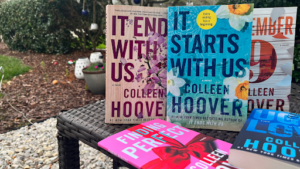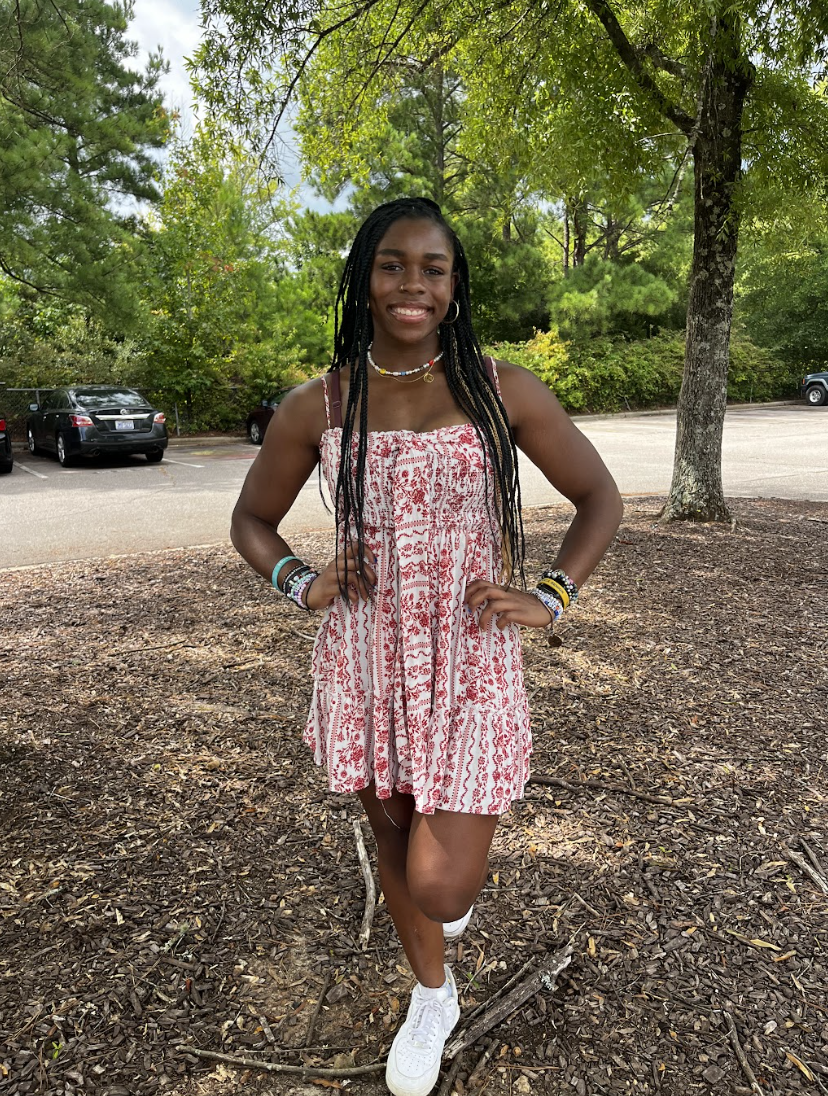
Colleen Hoover is an awarding-winning author whose books blew up on TikTok. She writes a variety of genres, but her most successful books are romance.
Even though her books are very well-loved, there has been recent criticism revolving around her stories.
*Note: I have read November 9, It Ends With Us, Ugly Love, and I am starting It Starts With Us.
Lack of Diversity
Hoover’s 24 books consists of white, straight, cis main characters getting with straight, cis, white men. While forced diversity isn’t the answer, having some level of range amongst the characters in books is important.
I won’t get into why representation is important, but all of her books revolving around white women tell us a few things: Hoover doesn’t think about POCs when writing, and she writes primarily for white women.
Many authors write with an intended audience in mind: teens, men, or a certain ethnic group, authors gear aspects of their writing to their target audience. We often see this where the main character is a part of that group.
Hoover’s books are written for older teen/young adult girls– and this isn’t a problem. You can write for a certain group and have the main character be a part of that group while still having diversity in characters. Whether that’s diversity in race, sexuality, disabilities; or just having a diverse ensemble of supporting characters. This also doesn’t mean readers can’t identify with characters that are different from themselves.
Hoover only writing about white women, with a white love interest, and a group of white friends shows that she doesn’t think about her audience of color when writing, nor is she acknowledging that POCs exist in general.
While we don’t know why Hoover made these choices, readers can come to the conclusion that Hoover doesn’t think POCs are “marketable,” specifically in the romance genre, which is a story we have heard time and time again.
Having white women as main characters isn’t the issue: It is that she only has white women as main characters. Out of all 24 of the different stories she has written, there has to be at least a handful that could have a main character that is Asian or black.
A case can be made that Hoover’s works reflect herself which is why everyone is white. In some of her books, this argument makes sense. Hoover’s childhood inspires It Ends With Us, it deals with abusive partners; while Hoover could’ve still used a non-white character, it could make sense for the main character to be white as Hoover is a white woman herself.
In other books, such as Ugly Love, there is no personal connection to the book or other reason for everyone in the book to be white.
People can argue that Hoover has only white main characters because she is writing for white women; white main characters make it easier for white women to identify with. This isn’t saying she is doing any of this with ill or malicious intent, but there is a point where it’s not an accident that you are leaving out multiple groups.
Trauma Porn
Many of Hoover’s books touches on dark topics such as rape, inappropriate relationships, deceit, etc. This can be good to open readers’ minds, though the way Hoover does it may not be the best.
Hoover’s most popular book is It Ends With Us, about Lily Bloom who meets a surgeon Ryle Kincaid, and it is love at first sight. As the book progresses, Ryle begins abusing Lily, reminding Lily of her childhood and her mother getting abused by her father.
Ryle physically abused Lily multiple times before she left him. While it’s important to talk about how hard it is to leave abusers and the “it was only one-time” mentality, Hoover did so in poor taste.
Lily goes through a battle of knowing she should leave Ryle while also still loving him, by the end of the book the two have a baby and Lily leaves Ryle.
Throughout the book, readers see the pair argue and Lily being abused, Ryle immediately apologized and then tries to have “make-up sex.” While this is something abusers do, it feels weird in this context. We go from a dark, heavy scene to smut that Hoover tries to paint as steamy and sexy.
Even her other books demonstrate toxic behavior. November 9, follows Fallon as she meets Ben in a cafe and the two have immediate chemistry. Fallon is a burn survivor from a house fire, the two agree to meet up every year on November 9. As time goes on, they fall in love but Ben is the one who set Fallon’s house on fire when they were teens.
Minutes after they meet, Ben talks about how “it’d be nice if she were showing a little cleavage, instead of wearing this long-sleeved shirt that leaves everything to the imagination (24).” He also talks about how he wondered what type of thong she was wearing.
Hoover admits that her story concepts are out there. “I like to take controversial themes and throw them into my book, so that when people read them, they are seeing things from a different perspective. I mean, we all know student-teacher relationships are wrong, but in one of my books, I write it in a way that you can’t help but root for the couple,” Hoover said in an interview with thisisnowhere.
Hoover admits that her goal is to get readers to root for something that may be wrong. While in general, this isn’t a big deal because it’s entertainment and fiction, but many young girls who are reading these stories begin to believe gaslighting, over-sexualization or “soft sexual abuse” is okay.
Toxic Men
The last critique I want to make about Hoover’s books is the way she portrays the male love interest. In all of the books I’ve read, the main character’s love interest comes in to save her or make her whole again at the last minute.
Altas swoops in to help remind Lily why she needs to leave Ryle (It Ends With Us). Ben keeps telling Fallon that her scars are nothing to be ashamed of and tries to instill self-confidence in her, whilst hiding the fact the scars are his fault (November 9). Miles overcomes his past to be a better man for Tate (Ugly Love).
Many of these male characters also show a lot of toxic, manipulative behavior that is too extensive to fully get into. Their coming in to save their leading ladies felt like a cheap shot to provide a resolution for behavior that the women shouldn’t forgive.
A lot of the men in Hoover’s books also exhibit sexual harassment-type behavior, which Hoover just glosses over and left as men showing their “dominance.”
While Hoover is a good writer with interesting concepts, the way she handles darker topics, writes characters, and her lack of diversity have turned many readers away from her.

In “Too Late” they never mention race. Sloan has dark hair, that’s the only hint, and not a good one. What do you think? Lot’s of gang violence.
I really enjoyed reading the article. I was actually looking up if there were any POC in Colleen Hoover’s books and this was the first hit. I graduated Leesville in 21 and was surprised to see that the Mycenaean at the top of an unrelated google search. Keep up the great work!